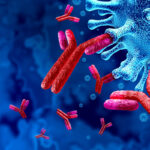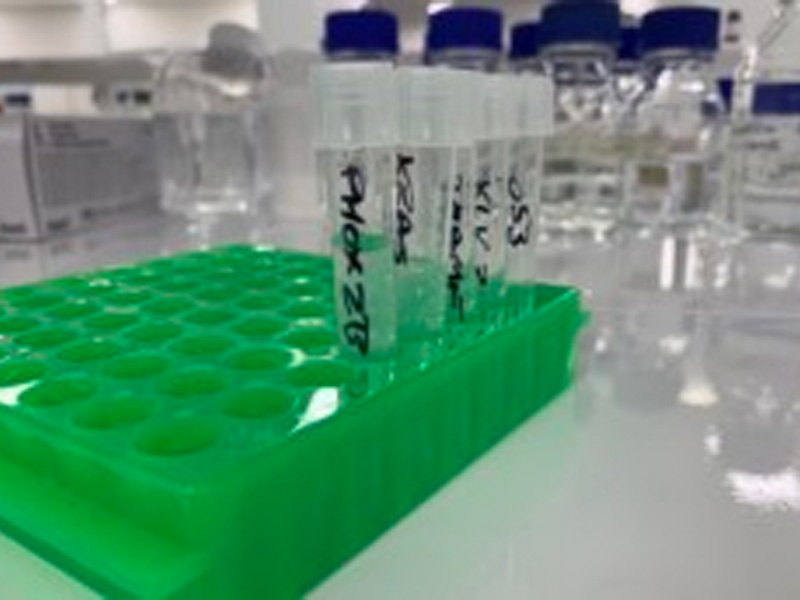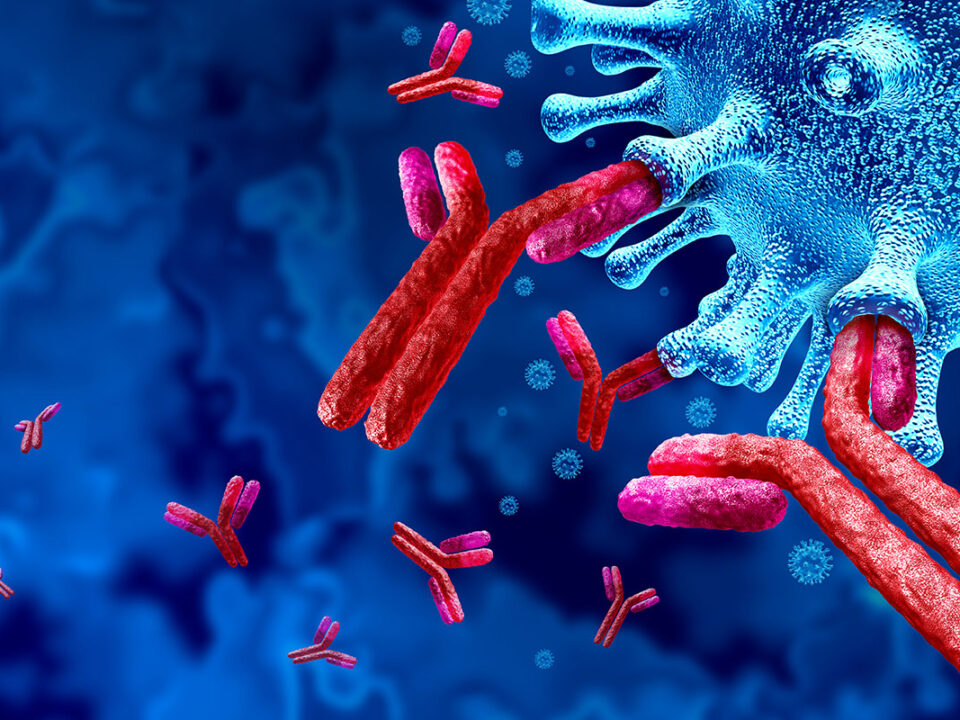
CoVIC consortium publishes Global study on variant-resistant SARS-CoV-2 epitopes in Science
April 8, 2024
Myrio Therapeutics awarded CUREator grant for pandemic preparedness research
April 8, 2024Myrio Therapeutics Pty Ltd (Myrio) today announced ground-breaking findings published in the Journal Nature. The study, titled Therapeutic Targeting of Intracellular Oncoproteins with Peptide-Centric CAR T Cells, used chimeric antigen receptor T cells (CAR-T), built using Myrio-discovered scFvs, targeting an intracellular protein in models of the childhood cancer neuroblastoma.
Key findings of the study include:
- Antibodies with the ability to selectively target peptides from an intracellular protein, PHOX2B, presented on the cell surface by major histocompatibility complex (MHC);
- Complete eradication of tumors in multiple patient derived xenograft models using CAR-T cells, despite neuroblastoma being a low MHC expressing solid tumor; and
- ‘Breaking restriction’: the ability of a CAR-T to target the same PHOX2B peptide presented by divergent MHC molecules.
Monoclonal antibody technology has been evolving for 45 years but the target landscape has not changed, being limited to cell-surface and soluble proteins. The ability of Myrio’s Retained Display™ (ReD™) antibody discovery platform to routinely target peptide-MHC complexes opens up a much broader range of therapeutic targets. The presentation of peptides on the cell surface by MHC enables T cells to detect and kill virally infected cells, or those harbouring mutations. Myrio has demonstrated that the target landscape for antibodies goes beyond that of T cells, being able to target non-immunogenic epitopes such as self proteins and most neoantigens.
One of the drawbacks of targeting peptide-MHC molecules is the diversity of MHC proteins within populations. This means that a peptide-MHC targeted treatment is ‘restricted’ to only those patients with a specific or closely related MHC.
Myrio Chief Executive Officer Dr. Pete Smith commented:
“The findings of this study represent a paradigm shift – for the first time, MHC restriction has been broken and we will be able to use a single product to treat a much broader patient population. This will improve our ability to recruit to clinical trials, especially in rare disease settings, and also treat patients of diverse ethnic backgrounds and genetics.”
The findings outlined in the Nature paper are the result of a collaboration between Professor John Maris’ laboratory at the Children’s Hospital of Philadelphia (CHOP) and Myrio (formerly Affinity Biosciences). The study combined CHOP’s leadership in cancer research and Myrio’s patented ReD™ antibody discovery platform, to identify and target key molecular drivers of neuroblastoma – the most common form of pediatric cancer outside of the central nervous system.
Neuroblastoma remains very challenging to treat, with half of children with high-risk neuroblastoma dying of the disease and many of the survivors suffering long-term complications from their treatments. The study used a newly identified target, PHOX2B, that is highly selective for neuroblastoma and is intimately involved in the biology of the disease.
Lead author Mark Yarmarkovich, PhD said: “Our work with Myrio has generated exquisitely selective antibodies with very potent anti-tumor activity using CAR and other immunotherapy formats. The peptide-centric nature of these antibodies allowed us to test and prove our hypothesis that tumor peptides could be recognized across different HLAs, breaking conventional HLA restriction, which will broaden the application of immunotherapy to more children with these deadly cancers.”
“Together with CHOP, we are planning to move the CAR-T program into the clinic around the end of next year and will use the same approach to target other paediatric cancers with high unmet medical need. We have also deployed the ReD™ platform against a range of other high value viral and oncology targets,” Dr. Pete Smith concluded.
For enquiries relating to the Nature paper or potential partnership opportunities get in touch with the team at Myrio here.
About the study
The Therapeutic Targeting of Intracellular Oncoproteins with Peptide-Centric CAR T Cells study was led by John M. Maris, MD, paediatric oncologist at Children’s Hospital of Philadelphia (CHOP) and lead author Mark Yarmakovich, PhD, senior scientist at CHOP. Ben Kiefel, Chief Operating Officer and other staff from Myrio are co-authors on the paper.
Professor Maris is a renowned authority on cancers of childhood with a particular focus on neuroblastoma, the most common cancer to occur in children outside of the central nervous system. The Maris lab identified multiple key molecular drivers of neuroblastoma including the transcription factor ‘paired homeobox-like 2B’ (PHOX2B) which is highly expressed in neuroblastoma and not in any normal tissues.
PHOX2B is an intracellular protein and, like all proteins made within a cell, short peptides derived from it are presented on the cell surface by major histocompatibility complex (MHC) for interrogation by T cells. The study found that Myrio’s ReD™ platform is uniquely able to find highly specific human antibodies that bind to peptide-MHC complexes and successfully generated antibodies that selectively target PHOX2B. The antibodies were used to direct T cells to target neuroblastoma using chimeric antigen receptors (CARs), achieving the aforementioned results.


